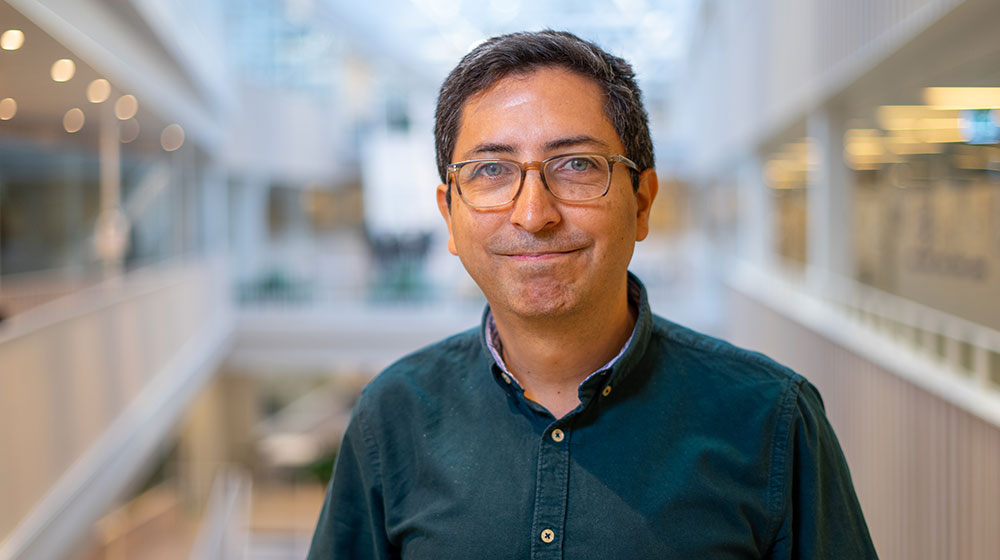New professor wants to improve things for patients

Rodrigo Moreno is passionate about improving the situation of patients by developing new tools for healthcare.
In June, he was promoted to Professor of Magnetic Resonance Imaging.
“It's like a next step in expanding and consolidating our group. It opens up opportunities for more collaborations with Karolinska Institutet and with other players in Sweden and Europe,” Moreno says.
Professor Rodrigo Moreno's group conducts research in two main areas, AI for image processing in medical imaging and imaging using magnetic resonance imaging (MRI).
”We work with physicians to make a difference, so that they can implement new tools in their practice. This is our goal, that our methods will improve the quality of life of patients,” he says.
Switched tracks
It was not a foregone conclusion that Rodrigo Moreno would work in this field. After studying computer science and electrical engineering in Colombia, he worked on computer vision during his doctoral studies in Spain. But after coming to Sweden and Linköping as a postdoc 14 years ago, he started to move more towards medical applications. In 2015 he came to KTH and in 2020 he was promoted to associate professor.
“I switched to medical image analysis because the impact on society is clearer and can be seen faster than with computer vision,” he says.
Facilitates the choice of treatment
Among the projects being carried out by Rodrigo Moreno's research group is the development of new methods to assess the mechanical properties of different types of tissue, particularly the brain, using a technique called elastography. Using MRI to determine whether tissue is stiff or soft can help doctors choose a treatment method.
- We collaborate with several parts of Karolinska Institutet. Right now, we are working on Parkinson's, we will soon start working on MS. Another project is about cancer. The surgeon can decide what kind of surgery to do depending on the stiffness of the tumour,” Moreno says.
Studying changes in the brain
Other projects involve assessing how the brain changes in teenagers during anxiety, as well as the difference between brain changes that occur during ageing and Alzheimer's, and whether it is possible to separate these processes using technology.
”We also have various projects involving AI. These include a European project to predict the risk of recurrence and aggressiveness of breast cancer, another project to study lung cancer nodules in an attempt to predict treatment response. Another project analyses changes in brain connectivity due to disease, and we have yet another one to predict what an MRI will look like in the future for a specific patient,” Moreno says.
What are your plans for the future?
”We want to expand in elastography. It's a unique type of technology that in Sweden is only available at KTH. We want to expand the methods so that they become available in more hospitals and extend their use to other diseases.”
”We also want to improve the processing of images, which currently takes quite a long time. Elastography also requires specialised hardware that is expensive and difficult to install. We want to explore options so that elastography can be installed in all hospitals with MRI so that the method reaches more people, that is our goal.”
Text: Sabina Fabrizi
